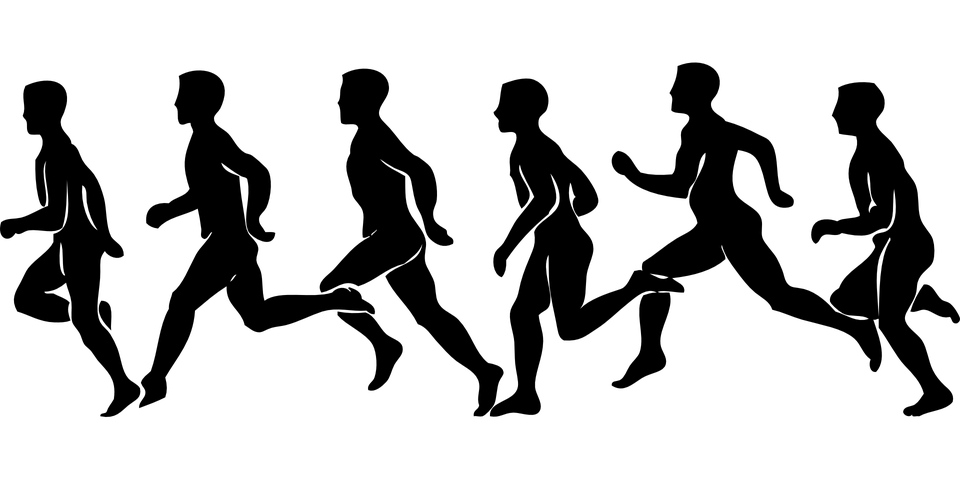Making a resolution to “stay clean” isn’t much help. It’s too big, too hard and too important. Good intentions and will-power alone won’t work. A better idea is to work on creating the conditions that make this possible.
So here are ten resolutions that could strengthen your recovery this year and help to ensure you don’t pick up.
But before we get started, a few things about resolutions. They feel great when we achieve them, but the reality is most people don’t. Normally they’re forgotten within a few weeks and peter out in a puff of disappointment and regret.
Some pointers to make sure this doesn’t happen to your resolutions:
-
Make them agreeable. Say, for example, you want to get fit by getting involved in a sport. Don’t tell yourself you’re going to play football each week if you’re scared of balls, or swim if you’re allergic to water, because you’ll never keep it up and you’ll feel bad about yourself. Choose something you like, or that you could at least grow to like.
-
Make them realistic. Don’t say you’re going to run an ultramarathon if you’re a 400 pound smoker. Start with a 5km resolution.
1. Exercise
Exercise can work wonders for your recovery. It doesn’t just get you physically fit. It also helps your mental health.
Exercise increases the production of serotonin and endorphins. Endorphins are natural opioids (the word comes from endogenous + morphine) produced in the body that generate feelings of well-being and help you sleep better. This helps to rebalance your brain chemistry which gets out of whack over years during using.
Exercise also helps with anxiety, depression, self-esteem and stress, all of which can be massive triggers for relapse. As little as five minutes of aerobic exercise can generate anti-anxiety effects.

2. Gratitude list
Gratitude is another healthy way of getting some of that sweet sweet dopamine addicts love so much. Feeling gratitude releases a bump of dopamine that feels good. When something (or some drug) stimulates the release of dopamine, we are inclined to keep doing it. So by practicing gratitude, we train our minds to hone in on things to be grateful for. It’s a powerful feedback loop that both feels good and does good.
Gratitude is one of the best antidotes to a whole slew of poisonous feelings, from resentment to self-pity to depression.
A few other unexpected benefits of gratitude:
-
Better sleep
-
Reduced anxiety and depression
Morning and/or night, write in a note book a list of things you’re grateful for that day.
3. Try something new
We didn’t get clean to be miserable and bored. After breaking free from the monotony of addiction, it would be insane not to make the most of this freedom.
So try something new. Think of something you’ve always wanted to do or somewhere you’ve always wanted to go and make it happen. Make plans, save money, do it. Whether it’s making pottery, visiting Pakistan, or cooking classes instead of cooking up, trying something new helps to keep you feeling enthusiastic about life. When staying clean feels worth it, you’re more likely to do it.

4. Stop Musturbating
Musturbation means holding rigid demands and expectations of ourselves, others, and life. When these are not met, we feel angry, anxious and despondent.
It’s the habit of telling ourselves things must be a certain way for us to be OK. Musturbation is the primary cause of emotional disturbance, according to CBT Grandaddy Albert Ellis.
For example:
- I must be successful in everything I do otherwise I’m a total failure.
- People must be nice to me all the time otherwise they’re complete arseholes.
- Life must be fair and I can’t stand it when it’s not.
“We humans don’t get upset by a bad condition that occurs in our lives. We largely get upset—or upset ourselves—because of our musts.” Albert Ellis
Letting go of these rigid musts and turning them into flexible preferences helps us accept life as it is. We can handle it when things don’t go as we’d like them to.
For example:
I must be successful in everything I do otherwise I’m a total failure –> I’d prefer to be successful all the time but I can deal with it if I’m not.
This might sound like it’s a word game, but it is powerful stuff. So stop wasting your energy on musturbation.
5. Meditate
Even just ten minutes of meditation a day can have a big impact on the way you experience life. It can help with anxiety and depression, can make you feel more calm and balanced, and it helps you to let go of negative thoughts more easily instead of running with them and working yourself up into a state.
It can feel tricky at first. But it’s a bit like weightlifting for your mind; every time you let go of a thought and bring your attention back to the focus of the meditation, your mind gets stronger.
Try the Insight Timer app to get started.
6. Service
Get a service position at a meeting. This helps you to feel a part of the meeting and build connections quickly. The commitment helps to keep you going, even when you can’t be bothered. And it feels good to be giving back and doing something for others.
7. Read a book

Books are like recovery crack… well, not quite, but reading them sure is good.
There’s 12 Step literature, like the NA Basic Text, It Works: How and Why, or the AA Big Book.
If that’s not your thing, or even if it is your thing but you’d like another thing, try…
Memoirs of an Addicted Brain is written by a neuroscientist ex-junkie who interweaves his own addiction and recovery story with explanations of how different drugs work in the brain.
Reading a book about something random and exciting can help you rediscover your enthusiasm and curiosity about life. You could try something a bit whacky like lucid dreaming, or a novel… mmm nice.
8. Accept something about yourself
Sometimes it seems easier to change things (or at least to say we’re going to), than to accept them. So how about using a bit of self-acceptance on something you would rather just change.
This ties in with musturbation. Instead of telling yourself, for example, “I must not be anxious” practice self-acceptance and try telling yourself “Sometimes I feel anxious but that’s OK.” Accepting that you feel anxious and that’s OK actually makes you less anxious, because you don’t berate yourself and start feeling anxious about being anxious.
9. Go easy on the caffeine
Smashing caffeine drinks causes dopamine spikes similar (although on a smaller scale) to hard drugs. That up and down can make you vulnerable to relapse if you’re hammering them too hard.
10. Journal
After years of drowning our brains in drugs, self-awareness isn’t usually an addict’s forte. But it is a prerequisite for recovery. Recognising distorted patterns of thinking about ourselves, others and the world is crucial to maintaining emotional stability and sobriety.
Journaling is a great way to put things in perspective and understand what’s really going on for you. It helps you to process the thoughts and feelings spinning round your head and draw out lessons from a rough day or week. It is a powerful tool for gaining insight and equilibrium. It is also amusing if you take a step back and see that life is actually quite funny when you look at it from the right angle.

Thanks a lot brother. Beautiful.
LikeLike
I love this article! I find this very interesting and everyone will benefit from your advice.
All the steps listed below have a truth behind and I will do my best to commit to most of them.
However, I am probably unsure about point n4 but life is about having different ways to see things and the world is great because we are all different somehow.
Happy New Year Mr Lewin 🙂
LikeLike
Well done Joel. Your journalistic career on a different subject
LikeLike
I love this these are all really true statements although I don’t do all of them I found your blog through an article on Facebook but I’m really glad I read it
LikeLike
Please can you notify me when you write again. Thanks
LikeLike
Joel‼️
Now is the time! You’ve been clean long enough and you are working with addicts on a daily basis.
Speaking for myself your blog will inspire and help me helping myself.
You have the gift of writing and now your brain is in good shape and I really see it in how words and sentences becomes a clear message.
Well done and thank you 🙏
LikeLike
hi Joel just heard you radio and you said you are in Thailand working to help others. Are you working in a rehab facility, my nephew lives there and is struggling to stop drinking. Are you able to say where you are working and or where my nephew could contact you. Hope you reply. Regards Patricia
LikeLike